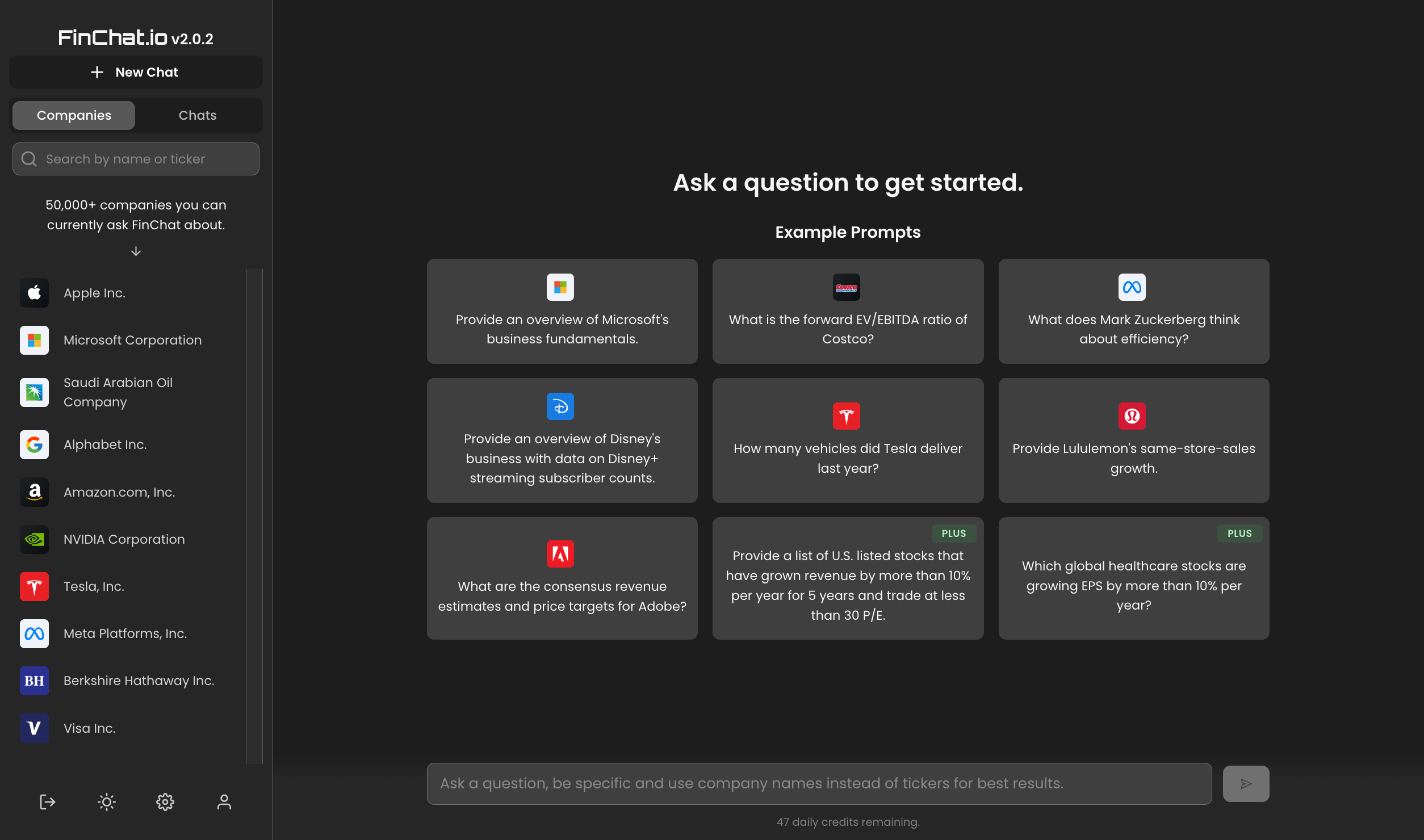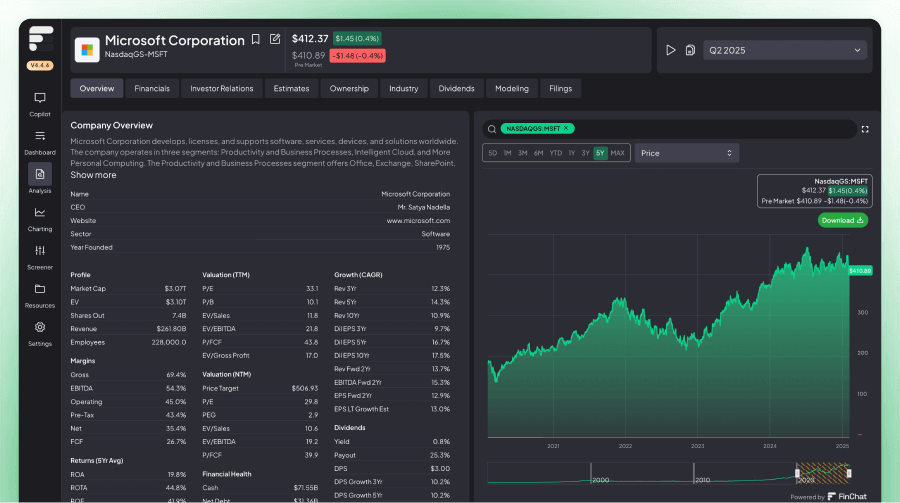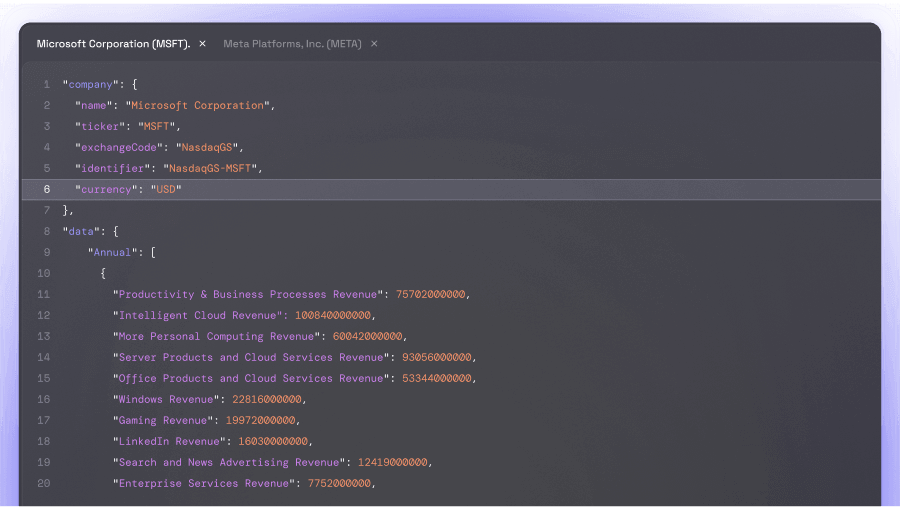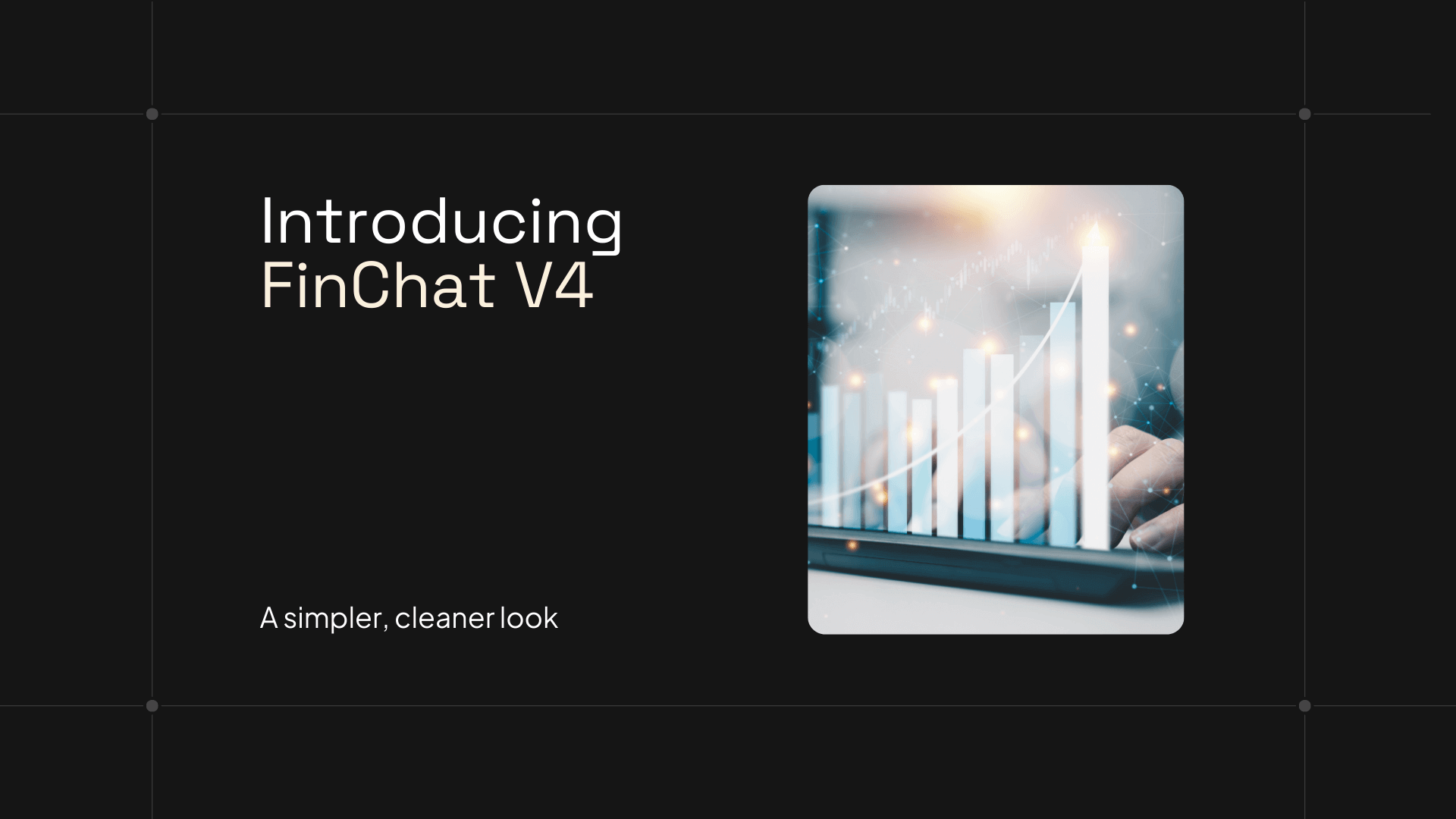Since its release in November of 2022, ChatGPT has taken the tech industry by storm, with other companies, such as Google’s Bard, hot on their heels. Generative AI chatbots, such as ChatGPT and Bard, are revolutionizing the way individuals access information. These chatbots have a variety of applications including conducting research, generating content, and even assisting with programming and coding.
Chatbots are also quickly becoming a key resource for finance professionals as they conduct investment research, with companies like FinChat.io developing technology that caters specifically to the finance industry. Let's take a look at ChatGPT, Bard, and FinChat to see how they stack up when it comes to investment research.ᅠ
What is ChatGPT?
ChatGPT is a product of OpenAI based on the Generative Pre-trained Transformer (GPT) architecture. As a state-of-the-art language model, it's designed to understand and generate human-like text based on the data it was trained on.
The "GPT" stands for "Generative Pre-trained Transformer": "Generative" indicates its ability to produce text; "Pre-trained" signifies that it has been trained on vast amounts of data before fine-tuning; and "Transformer" is the underlying neural network architecture that powers it. Users can interact with ChatGPT to obtain information, generate content, ask questions, and more.
While it exhibits human-like text generation capabilities, it's crucial to understand that ChatGPT operates based on patterns in its training data and does not possess consciousness, emotions, or true understanding. This aspect creates a margin of error for the chatbot, as answers may be hallucinated or not factually correct.
Available in both GPT-3 and GPT-4 versions, it is trained on a vast dataset comprising Common Crawl, Wikipedia, books, and other online content, though its training data cuts off in 2021. This makes it impossible for the chatbot to answer questions requiring real-time or recent data, as it can only pull information that was available at its most recent September 2021 update.
What is Bard?
Google's Bard is an experimental, generative conversational chatbot developed by Google, designed to produce new text based on its training.
Operating similarly to other chatbots like ChatGPT and Bing Chat, Bard's uniqueness lies in assisting with creative tasks, explaining intricate subjects, and condensing vast internet information into concise paragraphs. For nuanced tasks, such as tailoring recipes based on ingredients available, Bard shines where traditional Google Search doesn't. While it presently doesn't integrate into mainstream Google products, users can access Bard through its website.
Bard runs on Google's PaLM 2 language model, unlike the GPT-3.5 and GPT-4 models used by ChatGPT, meaning Bard’s performance or responses could differ from ChatGPT. PaLM 2, or Pathways Language Model, is Google's proprietary language model designed for human-like conversation, focusing on quality, safety, and context relevance.
Unlike other models, Bard has an added capability to fetch real-time information from the web to enhance its replies, including the ability to support its answers with images.
What is FinChat.io - AI for Investment Research
FinChat.io is an advanced generative AI tool tailored for the finance industry, providing real-time data and insights on public companies and investors. This platform takes generative AI and kicks it up a notch; it's an innovative tool for investment research that significantly cuts down the time required for data gathering, visualization, and summarization.
With its conversational interface, users can seamlessly interact with up-to-date financial data, getting information on over 60,000 global companies across all markets.
It's essentially a personal investment research assistant, equipped to build custom DCFs and financial models, screen for companies, provide the latest analyst estimates and consensus ratings, and educate users on the philosophies of superinvestors, among many other capabilities. Additionally, company-specific segments and key performance indicators (KPIs) are updated promptly, often within an hour of earnings results, allowing users to quickly access the needle moving data.
Over the past few months, FinChat.io has seen continuous improvements in speed, relevance, data coverage, and user interface, as evidenced by its changelog. FinChat is a game-changing tool for both retail and professional investors alike.

The Best AI Tool for Investment Research
While ChatGPT and Bard are great tools for many tasks, when it comes down to investment research, FinChat is a superior platform.
Right off the bat, we can say ChatGPT is the least effective tool for investment research. ChatGPT can only provide data up until September of 2021; investors looking for any recent data will be disappointed with ChatGPT as it will say it is unable to answer the question, or it will confidently hallucinate inaccurate information.
Next comes Google’s Bard, which is a step up from ChatGPT. Bard is able to access real time data from the internet and may be a fine tool for very basic data requests; however, the platform will confidently produce incorrect data or the wrong numbers, severely affecting its fidelity.
Finally, we have FinChat.io, which excels as the best tool for investment research on all fronts. FinChat not only has access to real time data and produces results at institutional grade accuracy, but it summarizes results, reports, and transcripts, creates visualizations, and sources its data, among many other features.
Don’t just take our word for it. We asked each site the same common prompt and here were our findings:


Due to its inability to access data beyond September 2021, ChatGPT was unable to answer this question. The chatbot hallucinated, stating Amazon does not disclose the AWS revenue figure, however, it then proceeds to describe how the AWS revenue is bundled in the AWS category - none of which makes any sense at all. While ChatGPT did provide a suggestion of where this information could be found, it did not provide sources for this data.

Bard did a better job at answering the question - sort of. The tool was able to provide a correct 2022 AWS revenue figure, however, it followed up this statement with an incorrect 2021 figure and incorrect growth rate. This is a huge concern for investors as frequent data flaws render the tool useless - investors need to have confidence in the data they are using. Apart from incorrect data, Bard did not support its answer with data tables or visualizations, and did not provide any extensive data history.

FinChat was able to answer the question thoroughly and without flaw. FinChat provided an accurate and factually correct response, even adding additional relevant information such as the growth rate. FinChat adds more value to its response by providing beautiful visualizations to easily digest the data and summarizing relevant transcripts. All information provided by FinChat is also accompanied by a link to the data source.




